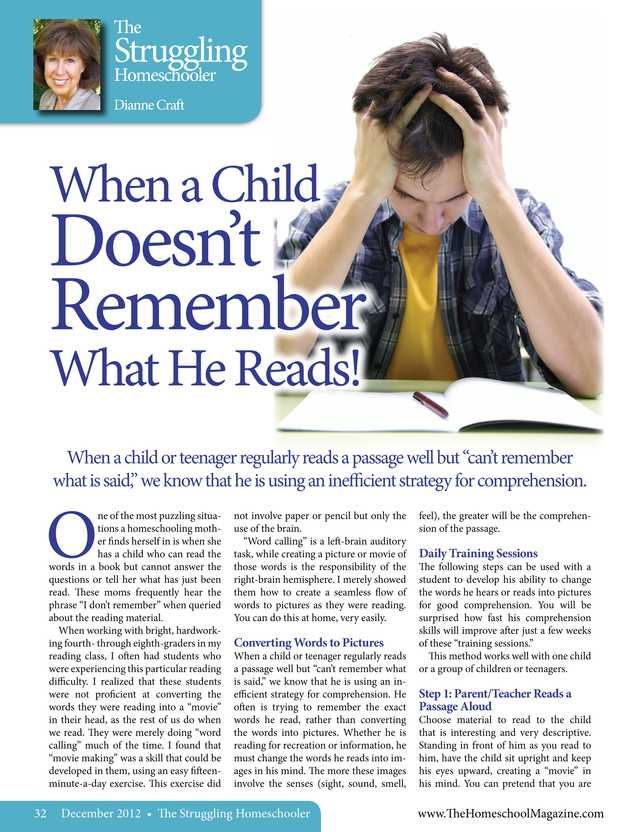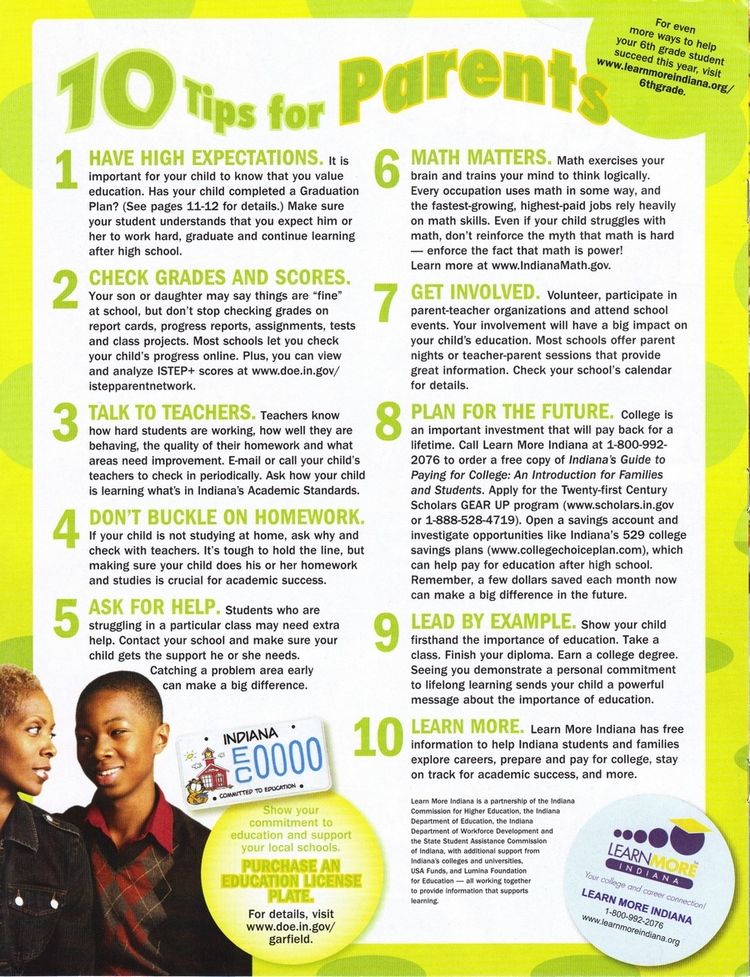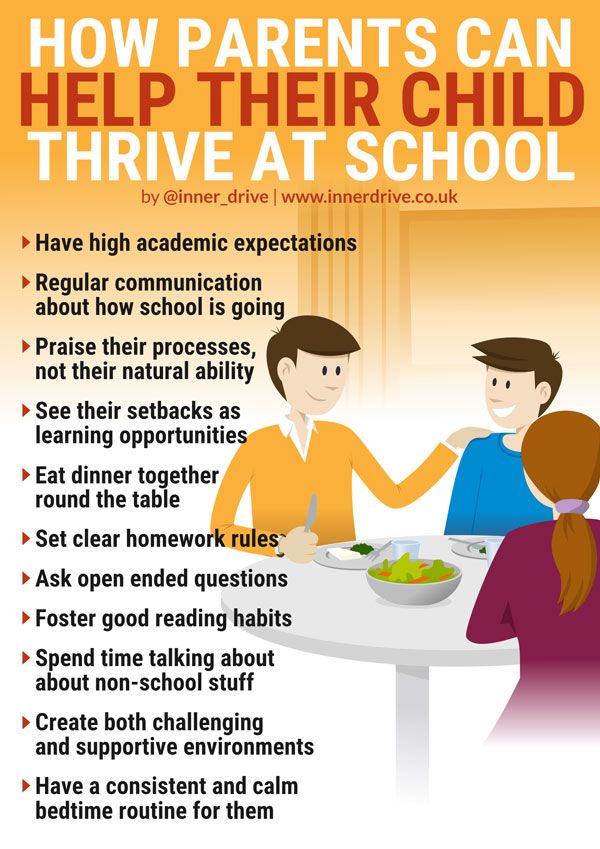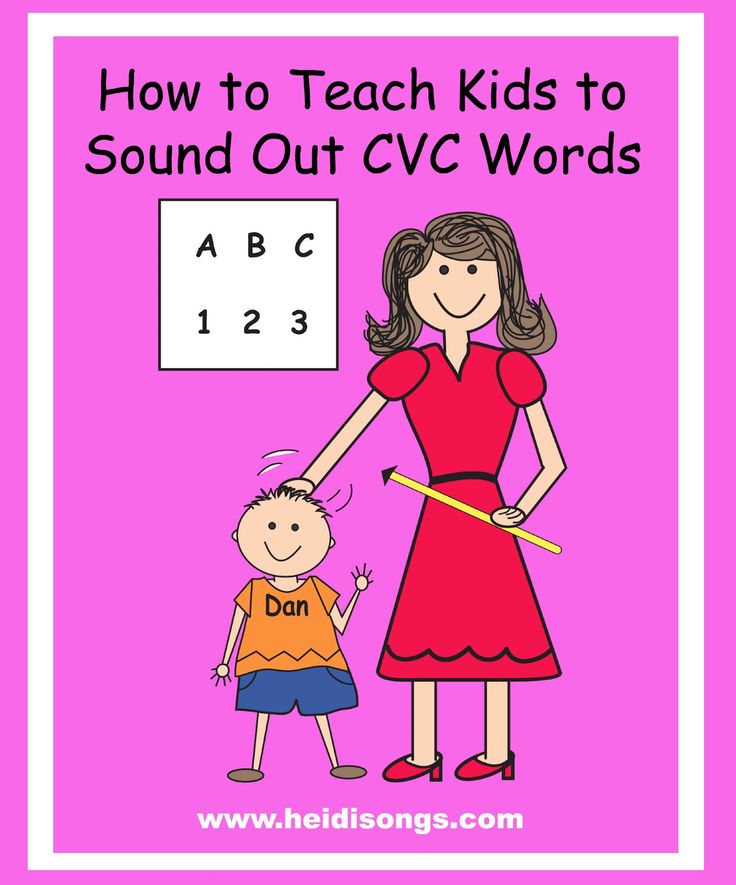How to tell a parent their child is struggling
What to do when you have Concerns about a Student's Development
This post may contain affiliate links. See Disclosure for more information.
Concerns about a child’s development are an inevitable part of teaching. As teachers care for their students and only want the best for them, this is natural. Sharing those concerns with parents, however, can be an intimidating, yet vital, conversation to have.
At the beginning of the year, it is so important to build a positive rapport and relationship with both the child and the parents. Spend one-on-one time with each child getting to know his personality, as well as likes and dislikes. Share lots of positive news and send “happy grams” home with every child. Make sure that every family knows how much you care right from the start. It’s difficult to assess the developmental level of a child that you don’t know well.
If (err, when) problems start to arise in your classroom, try all the usual tactics:
- Double-check your expectations.
Are most children able to meet them? Have you taken into account the child’s attention span, motor skills, culture, and home language?
- Model appropriate behaviors. Practice them together. Model again. Repeat!
- Provide visual cues (like this one for circle time) to make sure the children understand exactly what you expect.
- Give it time. For many young children, preschool is a whole new world– new people, new furniture, new rules, new expectations. It takes time to settle in.
Good observations are a crucial part of assessing all preschool children.
- Jot down notes on sticky paper.
- Have little checklists all over the room and at the end of the day, take the sticky notes and put them into a notebook.
- Sit back for a few minutes while a co-teacher leads the class and write directly into a notebook or computer. When we are observing children about whom we have concerns, though, it is especially important to remember good observation skills:
- Be objective! (No emotions, no interpretation, just the facts)
- Keep it simple! (Who, what, when, where, etc.
 )
) - Record both “positive” and “negative” observations.
It is extremely important to make the distinction between undesirable preschool behaviors that are developmentally expected and ones that are of greater concern. It is also good to remember that some developmentally appropriate behaviors, such as tantrums, can become concerning when they are excessive in either intensity or frequency.
(Please note that these are only examples of some of the behaviors you might see.)
Some Typical Preschool Developmental Behaviors:
- Whining
- Crying
- Pushing
- Grabbing
- Not sharing
- Active/Energetic
Atypical Preschool Behaviors:
- Avoids eye contact
- Lack of communication
- Excessive aggression
- Hyperfocused behavior (will ONLY play by spinning wheels on cars, for example)
- Unable to be redirected to other activities
- Excessive tantrums, especially during transitions
If through your observations and knowledge of child development, you feel that it would benefit the child to have an expert take a closer look, it’s time to have a conference with the parents.
- Start on a positive note. Be genuine. Every child has great things about them, and now is the time to let the parent know that Billy builds the most amazing block creations, or Sanjay shows a real connection with the class pet.
- Let the parents take the lead. Ask the parents, “Do you have any questions or concerns about your child’s development?” Some will immediately lead you into the discussion you want, some will simply say, “Nope.”
- Share your viewpoint. Start with a phrase like, “I have observed a few things that I would like to share with you.”
- Reassure the parent. Tell them “First of all, Jill is so lucky that you are her mom – you’re doing a great job!” or something similar.
- Objectively compare to typical behavior. “Most of the class is able to clean up when I play the clean up song, but Billy throws blocks and screams at the teachers.” or “Most of the class loves it when I call out their names during the circle time song, but Jill doesn’t make eye contact or respond at all when I say her name.
 ”
” - Give the parents a direction to go. Share with them the Early Intervention or other agencies that can help with diagnostic screening or encourage them to make an appointment with the pediatrician to discuss the concerns and rule out any problems.
A quick note of caution:
Unless you are trained and licensed to do so, DO NOT MAKE ANY TYPE OF GUESS OR DIAGNOSIS.
Sometimes, a parent will become defensive or refuse to believe you that there is any cause for concern. This is to be expected. Remember, it is extremely difficult for the parents to hear that their child is struggling – even harder than it is for you to tell them. Other times, the parent will thank you profusely for validating their inner doubts. Regardless, it is up to the parent to take the next step.
Follow up the conference with a short, positive email that summarizes the development concerns in a short list. Close with a personal invitation to let you know how the next step (a pediatrician appointment, developmental screening, or another specialist appointment) goes. It is often a good idea to remind the parent that you have their child’s best interest at heart. After all, you are spending hours with their child every week, and you want them to succeed as well. Let them know that you are on their team!
It is often a good idea to remind the parent that you have their child’s best interest at heart. After all, you are spending hours with their child every week, and you want them to succeed as well. Let them know that you are on their team!
Click HERE if you’re in the U.S. to view a list of early intervention services by state.
Are you a teacher?
FREE Circle Time Ebook!
Tips and tricks to maximize learning and minimize stress!
After you subscribe, you will be redirected to the FREE Ebook. We respect your privacy. Unsubscribe at any time.
Filed Under: Behavior, Family Connection
You May Also Enjoy These Posts
5 Senses Activity – Apple Taste Test
Halloween Bead Towers
How to Positively Approach Parents Whose Children Are Struggling at School
A couple of weeks ago we offered parents who might not have had such a good time during their own school years tips for helping their children have a better time. Today, we are going to talk about how teachers can approach parents whose children might be having some difficulties in school.
Today, we are going to talk about how teachers can approach parents whose children might be having some difficulties in school.
Sometimes it can be hard to talk about topics that might be received negatively. It can also be difficult to find the time to do this in a way that is most likely to get a positive response. But taking the time to talk to parents constructively might make the difference between having an irritated parent who doesn’t know how to help her child and gaining an ally who will work with her child at home to make school behavior and achievement better.
To take an example: Say it’s been a really busy day. You have grades due and homework assignments to check over and Billy Fergusson has not been able to stay in his seat. He’s been up and running around the classroom even though you warned him several times that he might get a behavior referral. And you have 18 other children to pay attention to so he cannot take up all your time. While you are running to the staff meeting after school, you see Billy’s mother in the parking lot. You say to her in a loud voice, “Ms. Fergusson, Billy needs to learn to sit still in his seat or he is going to have problems this year.” As you see Ms. Fergusson’s expression go from shock to anger, you know that Billy is not likely to be better able to sit in his seat tomorrow or even the next day.
You say to her in a loud voice, “Ms. Fergusson, Billy needs to learn to sit still in his seat or he is going to have problems this year.” As you see Ms. Fergusson’s expression go from shock to anger, you know that Billy is not likely to be better able to sit in his seat tomorrow or even the next day.
Let’s think about another way that this could go: You have had the same busy day and Billy has not been able to stay in his seat. It’s still true that the other children deserve your attention just as much as Billy and you are feeling overwhelmed. But instead of making a quick comment to his mother as you are hurrying to your next activity, when you see her in the parking lot, you take a breath and go over to her. While you are walking, you remember that Billy is really creative. You say “Hello, Ms. Fergusson. You know I am really enjoying having Billy in my class. He thinks up the most amazing stories at circle time. We are working on sitting in his seat when I ask him to. Could I call you sometime in the next day or two to talk more about that?” You may be a couple of minutes late to your meeting but you have made great progress in letting Ms. Fergusson know that you care about and like her child, and that you want to work with her to solve an issue. She is much more likely to be open to your suggestions and to work with you to help Billy be able to follow directions.
Fergusson know that you care about and like her child, and that you want to work with her to solve an issue. She is much more likely to be open to your suggestions and to work with you to help Billy be able to follow directions.
It can be really difficult to find the time to make a positive approach to parents to talk about difficulties that their children are having. It can feel like a quick couple of sentences across the parking lot are all that you can manage. Unfortunately, that sets up the possibility for a negative dynamic. The parent may feel that you have not given her enough information about what is happening and that you are expecting her to solve the problem all on her own. And, because we often feel that our children’s behaviors reflect on us, she might feel offended. This could mean that you will spend a good portion of the school year trying to get a defensive parent to help you and that you are going to spend a lot more time trying to get Billy to stay in his seat. Better to take the time at the outset to create a feeling of teamwork with that parent so that things could really improve for Billy.
Better to take the time at the outset to create a feeling of teamwork with that parent so that things could really improve for Billy.
Does that feel easier said than done? It doesn’t have to be. Here are some tips for ways to talk to parents about difficult topics that can set up a more positive dynamic:
- Try a “feedback sandwich”. This is a really good way to handle giving a parent a heads up that their child is having difficulties. You position your constructive feedback in between two positives. So you could say,” Smith, Lily is doing really well making new friends in the classroom. We are working on talking with friends when the class has free time instead of during instructional time and it would be great if you could help remind her about that rule too. Once she gets that down, I think she will be a role model for the other students.” You have sandwiched your feedback about what Lily needs to work on between two positive things about her behavior.
This lets Mr. Smith know that you appreciate Lily’s strengths. It also lets him know that you expect her to succeed at regulating her behavior. He is now much more likely to respond positively to your request to help reinforce the classroom rule.
- Be clear about what you would like parents to do. Saying that a child needs to “work on” something or “should not be” engaging in a behavior does not let parents know about how they can help their children. And many parents genuinely may not know how to change a child’s given behavior. So you could try something like “ Fergusson, there are some things that you could do at home to help Billy be more able to stay in his seat at school. He could practice sitting in his seat while he does homework at home. If you tell him that you really like the way that he is staying in his seat when he does it, that will help him to learn that he people will notice when he is following directions.” The more specific you can be, the better the chances that parents will actively work on the behaviors with their children.

- Mix in positives with feedback about needed improvements. It can be hard to keep trying to change a child’s behavior if a parent feels that she only gets negative feedback from school. And that can lead parents to be stressed and start being negative with their children. Then no one is likely to improve! So take time to recognize a child’s positive behaviors, even if you also have to give feedback about things he needs to work on. This can be hard to do when you are pressed for time and frustrated with a child, but it will pay off in the end. Here a couple of things to try:
- Positive phone calls home. If a child is having a particularly good day. Or even if she just follows one direction well, take the time to make a call home to tell her parents what a good job she did. This will make everyone feel good. And it will increase the likelihood that parents will be willing to talk to you in the future, instead of screening your phone calls.

- Notes or school cards. Sometimes you won’t have time to make a call or won’t remember at the end of a long day what went well. That’s where notes or school cards can be really helpful. If you write down during the day what the child is doing well as well as where he needed to make improvements, then at the end of the day you can send home a note that has positives as well as constructive feedback. School cards can be very useful for this and we use them in KITS a lot. This is a card with one or two behaviors written on it that you are targeting with the child. So it might be “Stayed in my seat during writing time” or “Followed directions the first time”. The day is divided up into a couple of sections like “morning” and “afternoon”, or “before snack”, “after snack” and “after lunch” (depending on how often the child needs feedback). And there are spaces for feedback about how the child did. These may be words or smiley faces, anything that can be done quickly and allows for some successes.
 This can be a quick way to tell the parent how the day went. And the parent can agree to reward the child for 70% positives (no child will be perfect). So you can say “Wow, I just know you are going to earn that extra computer time today because you already have two smiley faces on your school card.”
This can be a quick way to tell the parent how the day went. And the parent can agree to reward the child for 70% positives (no child will be perfect). So you can say “Wow, I just know you are going to earn that extra computer time today because you already have two smiley faces on your school card.”
- Positive phone calls home. If a child is having a particularly good day. Or even if she just follows one direction well, take the time to make a call home to tell her parents what a good job she did. This will make everyone feel good. And it will increase the likelihood that parents will be willing to talk to you in the future, instead of screening your phone calls.
These strategies do take time and effort to set up. But they will put you and the parents on a positive track. In the end, taking the time in the beginning will be worth it as you see the pay off in positive changes for the child and a parent who will team up with you to make those changes happen!
[divider type=”standard” text=”Go to top” full_width=”no” width=”1/1″ el_position=”first last”]
Image: © Alexsokolov | Dreamstime.com
[divider type=”standard” text=”Go to top” full_width=”no” width=”1/1″ el_position=”first last”]
SIGN UP FOR ALERTS
Want to hear more from us? Sign up to receive alerts when we add new content. We will never share your information.
We will never share your information.
Email address:
First Name:
Last Name:
I am a:
Parent Early Childhood educator/interventionist Elementary school teacher Middle or high-school teacher School principal/administrator School counselor/psychologist/interventionist Practitioner Researcher Other
Form Action:
Subscribe
Unsubscribe
How to tell parents that their child is untidy
Date: February 15, 2019 Author: malaha84 Heading: School of life 0
In some life situations, you have to enter into a dialogue with other people about their children. A special approach is needed here to avoid conflict or misunderstanding. It is important to know how to tell parents that their child is messy.
A special approach is needed here to avoid conflict or misunderstanding. It is important to know how to tell parents that their child is messy.
General recommendations
The untidiness of young children is not always the fault of the parents and their fault, this must be remembered when talking with them
There are several points that will help you to effectively talk with parents about their child and convey the necessary information to them:
- Politeness. Calling by name and patronymic, lack of criticism and insults, the ability to listen and accept the position of the interlocutor are the standard rules of communication. By following them, you will cause the interlocutor to respect yourself.
- Emotions. Control over them will avoid conflict. If neither you nor your parents can cope with emotions, then it is better to ask to reschedule the conversation for another time in order to discuss the problem “in a cold head”.
- Psychological portrait.
 All people differ in characters, temperament, outlook on life. Everyone reacts differently to the same words. Try to evaluate the interlocutor, determine his type and be more careful in choosing the right phrases.
All people differ in characters, temperament, outlook on life. Everyone reacts differently to the same words. Try to evaluate the interlocutor, determine his type and be more careful in choosing the right phrases. - Charges. In no case should parents be blamed for the untidiness of their child. This will only cause negative emotions. It is more correct to formulate the question in such a way that it justifies the parents as if they were victims of circumstances. For example, you can’t exclaim: “Who raises children like that ?! Have you seen your son?! He's dirty as a pig!" It is more correct to ask the question like this: “Your child is so mobile and energetic. It must be so difficult to keep track of his appearance? This will help to take one side of the barricades with parents.
- The magnitude of the problem. The significance of the situation should not be exaggerated. Excessive exaggeration of untidiness and inappropriate comparisons can hurt parents or cause them to despair.
 It is better to make the problem easy to solve and mundane, but at the same time important.
It is better to make the problem easy to solve and mundane, but at the same time important. - Friendliness. A smile and a friendly tone will help break the ice between the participants in the conversation and set you in a positive mood. Even if parents begin to switch to insults, you need to remain calm.
How to behave as teachers
For a professional teacher, the untidyness of students is just one of the daily problems that should not cause any particular difficulties.
The job of a teacher is to communicate with people. You need to be able to properly build a dialogue in order to achieve your goal and convince a person that you are right or convey important information as correctly as possible.
Preparation
The conversation should be started carefully to understand the role of the parent in the upbringing of the child. For example, it makes no sense to discuss this topic with the same untidy father: it is better to invite the mother.
Then find out if the parent understands the importance of neatness or considers this issue unworthy of attention. Gently touch on this topic in a general context, without mentioning a specific child, and listen to the parent's point of view.
Conversation
Based on the information received, you can start a conversation. Your point of view should be expressed with full seriousness, but not with hostility. If you have children of your own, mention that even you had the same problems with your child, even though you are a teacher.
During the conversation, evaluate the parent's reaction to your remarks and remarks. Sharp corners need to be smoothed out, but one cannot refuse one's intentions to achieve a neat look from someone else's child. It is possible in some cases to "back up" and retreat, but not capitulate. Parents must understand that they have an obligation to do something.
How to find a solution
When the essence of the problem is stated, and the parent understands the need to solve it, we move on to the practical part.
Do not use other children as examples, as such comparisons almost always cause negative emotions. However, by status, a teacher is supposed to know everything about raising children, so you can express your point of view, and this must be done firmly and confidently so that parents do not have any doubts.
Try to avoid ultimatums. There may be several solutions:
- a joint conversation with the child, parents and teacher;
- individual work with a teacher;
- home talks, forms of encouragement for performing daily hygiene procedures;
- work with a psychologist (in case of emergency).
Other things to look out for
Avoid blackmail, don't say: "If your child is not neat, we will punish him!". This is a direct path to a serious conflict, which will only aggravate the situation.
There are cases when parents agree with the teacher, but do nothing significant. Then you have to be more persistent and repeat the conversation. Focus on the conditions: change your approach, find out about possible problems in the family, etc.
Focus on the conditions: change your approach, find out about possible problems in the family, etc.
The relationship between the child and the parents is also important. There is a risk of doing a disservice when parents solve all problems with banal assault and other types of physical and moral violence. Then it’s better to keep silent, and let the baby walk untidy, but healthy.
How to tell friends or acquaintances
No matter how untidy a child is, he cannot be blamed or reproached for this; try to find more loyal and cunning ways to teach your baby to hygiene
It is much easier to tell friends or acquaintances about the untidy child. You know each other much closer, there is no need for subordination. But this fact does not negate the need to be tactful: Express your comments not as a reproach or accusation, but as a friendly gesture of help.
A good method would be a personal example. It is necessary to show love and care for the baby, for example, combing it in front of the parents or wiping the face. Most likely, this will shame them and make them think about the problem.
Most likely, this will shame them and make them think about the problem.
A bad method is to compare with your own child. Each parent is sure that his baby is better than others, he definitely has no equal, so with such a statement you can only spoil your relationship with friends.
Children's slovenliness has different roots: upbringing, family situation, parents' inaction, etc. You can't say such things straight on the forehead and wait for an instant solution to the problem. Each case needs its own approach.
- Author: malaha84
Rate the article:
(0 votes, average: 0 out of 5)
Share with your friends!
Tags:
How to cultivate respect for parents — Lyceum №14
Dear parents!
This section of our site will help you in your most important mission - the upbringing of your children. We will highlight here the most typical problems that arise in the relationship between parents and children.
And our first issue is devoted to the most important question:
How to cultivate respect for parents?
Raising children has always been difficult. In our time, the number of these difficulties has increased: the most powerful media, the street, the increased workload of parents, who are often employed in several jobs. It is difficult for us to somehow influence all these factors.
Consider those reasons that we can try to eliminate on our own
Quite often you can find a situation that parents (especially mothers) complain about when grandparents (mother-in-law) treat their adult daughter or son (daughter-in-law or son-in-law) as to the foolish and "sand" them in front of the child, ironically, constantly paying attention to what the parents are doing wrong. Sometimes they can even tell the child: "Here is your mom or dad ...". Those. essentially completely discrediting the parents.
It is not uncommon for a husband to unceremoniously point out to his wife her shortcomings in the presence of children.
At the same time, wives also do not remain in debt ...
But even if nothing like this is observed, it is not so easy to maintain the authority of adults. The child is not closed in the circle of the family. He walks the streets, looks around, absorbs impressions. And in today's world, a disrespectful spirit rules. Pervasive irony, ridicule, arrogance. This directly or indirectly convinces us that there is nothing sacred in the world.
How to cultivate respect for parents in such unfavorable conditions? The easiest way is to say: "Let them correspond, then there will be respect." But it depends on what to focus on. Every person has advantages and disadvantages. If you think like that, it turns out that only an ideal person is worthy of respect. But then why is it that in almost all cultures, both European and Asian, the commandment to honor the father and mother is given without any reference to their behavior - this is the first commandment that regulates relations between people in general.
Is this respect necessary?
The question is by no means an idle one, because if the need for a respectful attitude towards each other was obvious to everyone, people would not adopt opposing models of behavior so easily.
In Europe and America, and even in some of our families, the so-called partnership relations between parents and children have come into fashion today. Well, which of the child is a "partner"? A partner is an equal, companion, comrade. And a child, even in a game (another meaning of the word “partner” is “an accomplice in the game”) often cannot be an adequate partner: he cries, losing, wants to be succumbed to him. Especially in life! If equal rights, then if you please, have equal duties, otherwise this is not a partnership, but pure swindle. But what are the responsibilities of a child, not even a very small one? Clean up the room, wash the dishes and sometimes go to the store for bread and milk? (Serious purchases are usually not trusted to children. )
)
But the ideology of partnership, despite its obvious absurdity, appealed to many adults! Unpleasant consequences come later, and at first adults believe that it is smart and right to behave with children in this way. Say, you never know what happened before? Now is a different era, everything should be new! They fall for the bait of partnership because, firstly, it gives the illusion of friendship and intimacy, which people lack so much in the current atomization of society. Secondly, when you are on an equal footing with a child, then you yourself are almost a child, you feel young, you don’t have to educate - freedom - it’s easier that way.
Proponents of a "non-authoritarian" approach say that the main thing is not to lose the child's trust. That is why they propose to act exclusively by the method of persuasion. And then only until the child is ready to listen to you. If he gets tired, he has the right to turn his back and demand that he "not be loaded." In countries where such methods of interaction with children are not just promoted by individual enthusiasts, but are already legally obligated to parents and teachers, all types of punishment are gradually prohibited. In Holland, for example, according to local sources of information, "pedagogically acceptable punishments" are "penalty chair", a reward calendar and highlighting positive qualities. That is, in fact, the punishments have been canceled, because the "penalty chair" for hooligans of school age is simply ridiculous. Juvenile justice , which guards the rights of the child, obliges parents to provide their children with pocket money (so that the child cannot be deprived of them as a punishment), provide the child with a personal computer and TV, guarantee leisure and communication with friends. So you can’t ban partying as a punishment. And there is nothing to stutter about the influence on the choice of friends!
In Holland, for example, according to local sources of information, "pedagogically acceptable punishments" are "penalty chair", a reward calendar and highlighting positive qualities. That is, in fact, the punishments have been canceled, because the "penalty chair" for hooligans of school age is simply ridiculous. Juvenile justice , which guards the rights of the child, obliges parents to provide their children with pocket money (so that the child cannot be deprived of them as a punishment), provide the child with a personal computer and TV, guarantee leisure and communication with friends. So you can’t ban partying as a punishment. And there is nothing to stutter about the influence on the choice of friends!
The very posing of the question, when a child fights with his relatives for his "rights", and other people's uncles and aunts incite him: they say, father and mother do not offend you, child? and then you just say it! we will show them... - the very formulation of the question indicates that there is no longer any talk of any respect for parents. The result is a perverse hierarchy in which children dominate their parents. In such an environment, depriving parents of authority is extremely dangerous, because when a child is his own head, soulful ideas very easily penetrate into this immature head. “As a teenager grows up, the chances of getting out of control become more and more. Dangerous temptations stand in the way: early sex, drugs, weapons, sects.
The result is a perverse hierarchy in which children dominate their parents. In such an environment, depriving parents of authority is extremely dangerous, because when a child is his own head, soulful ideas very easily penetrate into this immature head. “As a teenager grows up, the chances of getting out of control become more and more. Dangerous temptations stand in the way: early sex, drugs, weapons, sects.
T.o. respect from early childhood is essential, because the authority of parents will make it much easier to resolve many issues. It implies trust and love. The child feels the protection of a reliable adult.
It is much stronger than a friend or partner. And entering a transitional rebellious age, authority serves as protection against dangerous temptations: early sex, drugs, weapons, sects. Such risks are minimized there. Why deprive a child in childhood of a sense of security, which gives the belief that mom and dad are the most important people? And that special quivering childhood love, children's adoration of parents, the memory of which will be the further - the more precious and which is impossible in partnerships, because partners are not adored?
Without the authority of adult children it is impossible to teach and educate
The phrase "And as you want people to do to you, do to them" was said more than 2000 years ago and is relevant to this day.
However, it is impossible to instill respect in children if you yourself do not respect others. Children are not at all such good psychologists as many people think, but they perfectly capture the violation of the hierarchy and vibes of rudeness.
A small child is closest to mother. So, it is from her that he "reads" the primary information about the attitude towards people. Therefore, his attitude towards them and towards herself will largely depend on how she treats others. So it is absolutely necessary to critically assess two points:
- firstly, what kind of example does the mother set for the child,
- secondly, what attitude does she herself want to achieve from him.
If a mother sets an example of a polite, caring, generous attitude to her husband, to her parents, to her father-in-law and mother-in-law, then this alone will set the children in the right mood. It is very important that the child hears as much good as possible about relatives (and distant ones too!) And then we ourselves, sometimes without noticing it, even manage to mix a fly in the ointment into a barrel of honey.
For example, you can say: "Let's clean up when dad comes to please him, he loves order so much." And you can, speaking about the same cleaning, emphasize that otherwise dad will swear. And to add that he already comes home from work angry, and here - "such a mess."
In general, it makes sense to look at ourselves from the outside more often and think about how certain words and actions of ours can be perceived by children, what lesson they will learn from them, what memory we will leave about ourselves. Years will pass, children will understand and re-evaluate a lot. What will the grown child then tell about how his mother treated loved ones?
It is important for a child to see and copy the mother's respectful treatment of elders, especially elderly people. Unfortunately, this is by no means the norm now. You often come across the fact that children do not even know the basics of cultural behavior. The old woman drops something on the floor and picks it up herself, groaning. And it doesn’t occur to the grandson standing next to him to bend down to help her. Not because of laziness, but simply because he does not see an example at home and does not know how to behave in such a situation.
And it doesn’t occur to the grandson standing next to him to bend down to help her. Not because of laziness, but simply because he does not see an example at home and does not know how to behave in such a situation.
Is it good to call parents by their first names?
It is very important to try to anticipate the consequences of your actions.
Suppose a mother teaches a child to call her by her first name. She thinks it's original. When she hears that in this way she deprives herself of her uniqueness in the eyes of the child, the woman will be quite surprised and, perhaps, even outraged. What kind of stupidity?! On the contrary, she is special! All children call their mothers in a standard way - “mother”, and she is Alena (Tanya, Natasha)! But this is only at the most cursory, superficial glance. If you dig deeper, it turns out that the originality of this approach is illusory. After all, mother is the only one for every person (although the word is the same for everyone). But Alain, Tanya and Natasha in the life of a child will be arbitrarily many.
But Alain, Tanya and Natasha in the life of a child will be arbitrarily many.
Or take the previously mentioned “partnership” with a child. Mom does not want to grow old, but she wants to remain a girl almost until retirement. But the girl can be treated patronizingly at best. What about respect for the mother?
Others subconsciously look for in a child a “solid male hand”, which for one reason or another they lack in life. And they allow their son not only to command himself, but also to flirt rudely. Surprisingly, now sometimes it is necessary to explain seemingly obvious things: what is absolutely unacceptable when a son slaps his mother on the backside, grabs her chest. Not everyone now understands that these are signs of sexual disinhibition, which is very dangerous for the child's psyche, and instead of stopping such behavior, they giggle. And some adults (including the father of the child or those who are used to seeing something else on TV grandparents) can even provoke the boy, believing that a real man is growing in the family.












